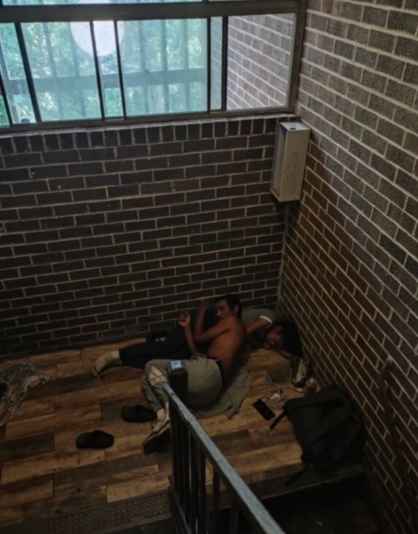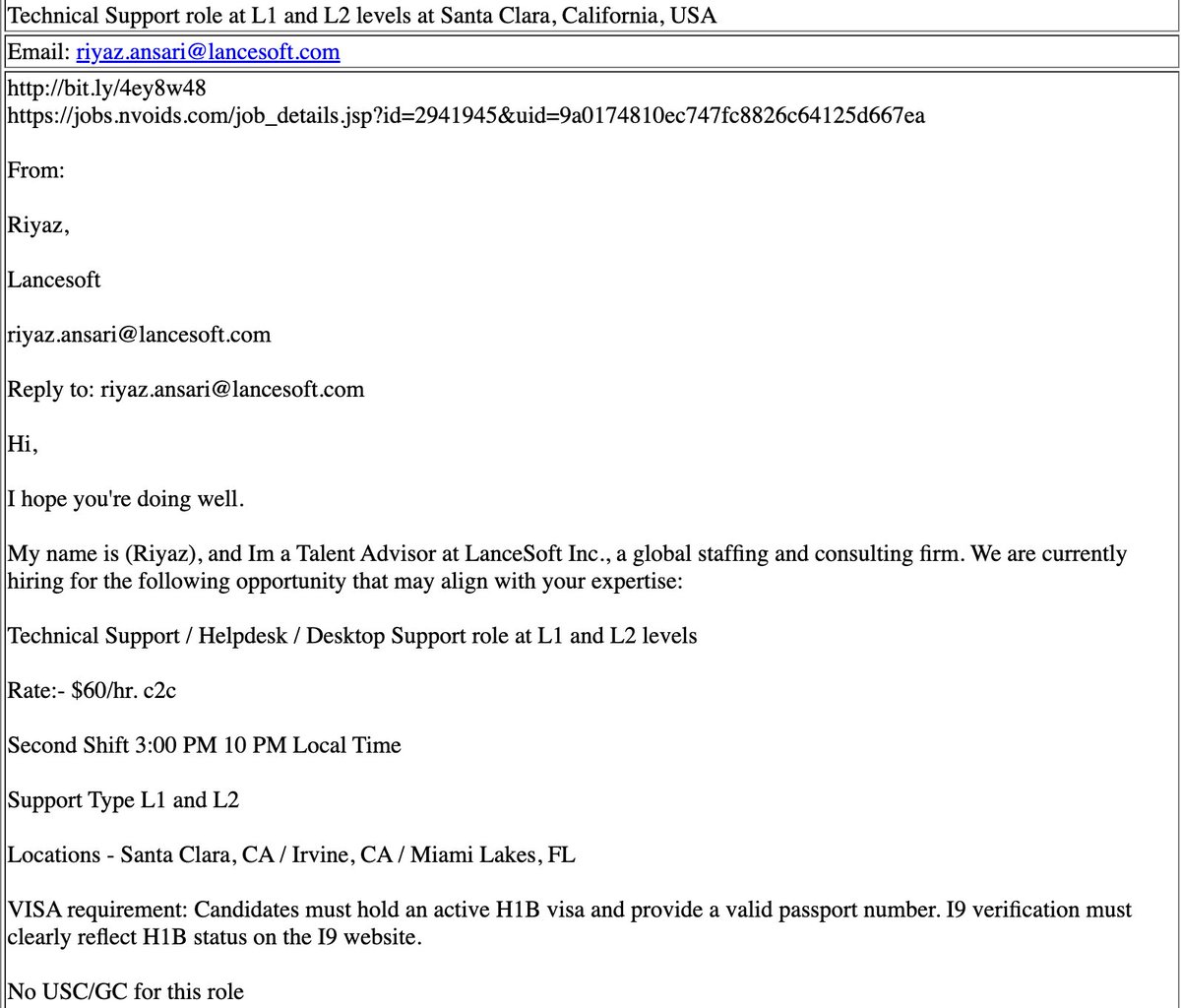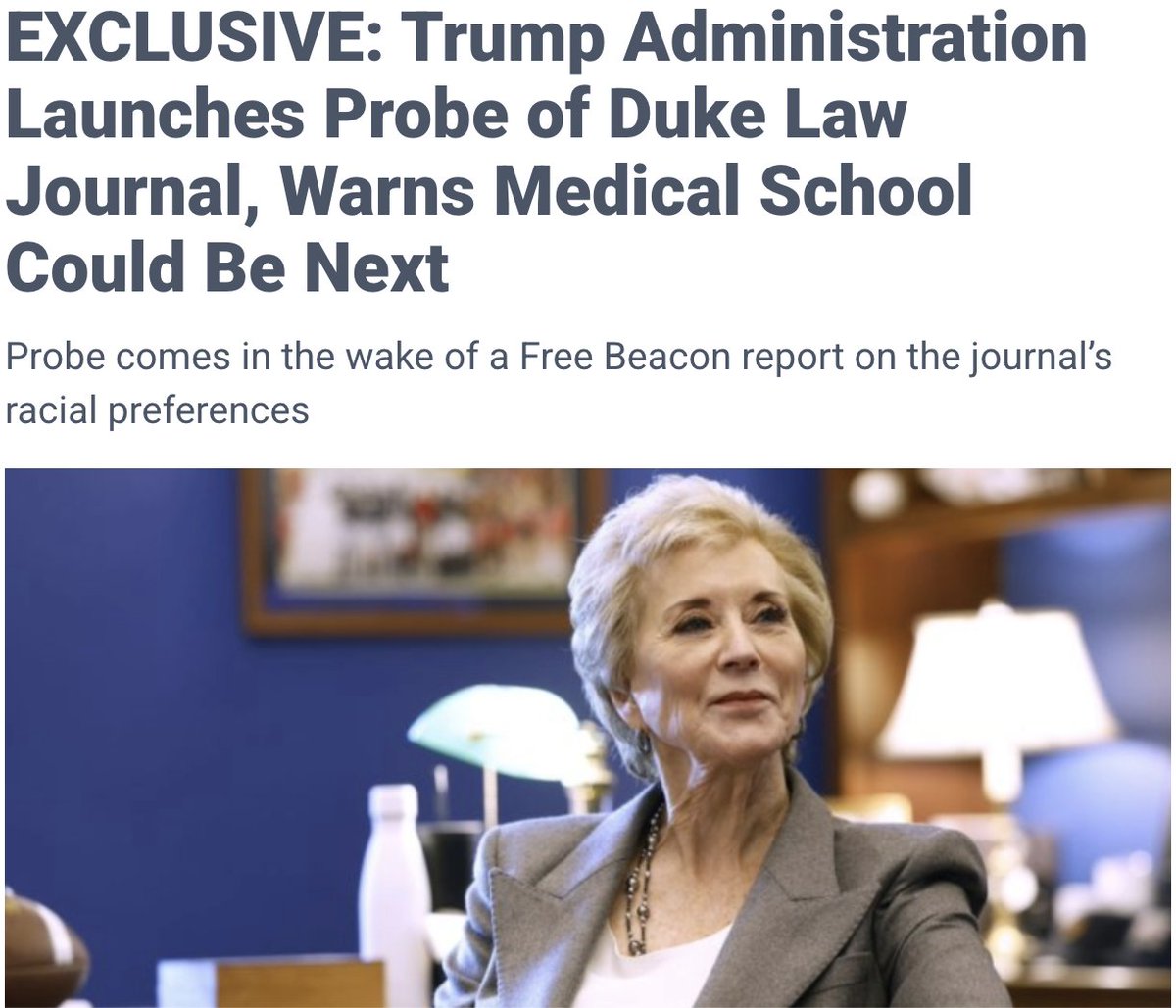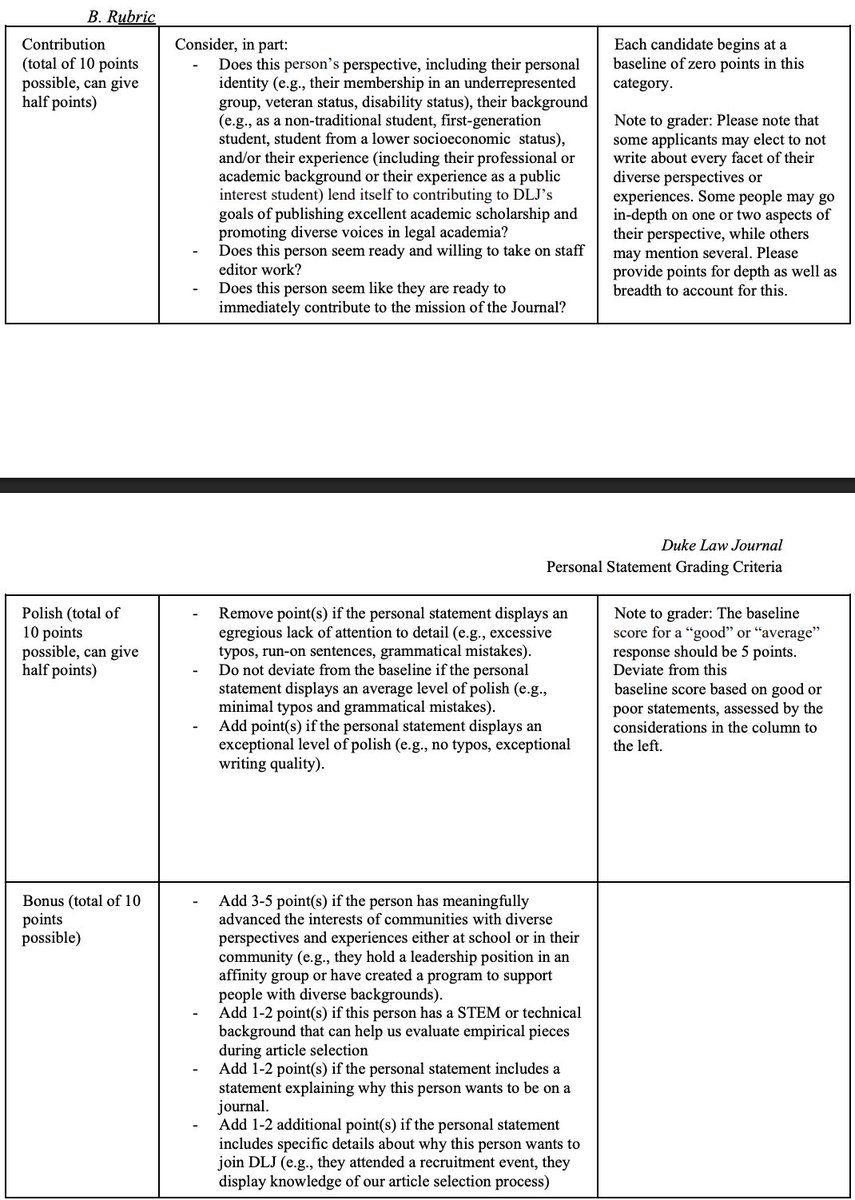NEW: Fifth Circuit appellate judge Kyle Duncan, who was shouted down by Stanford Law students yesterday, says the protesters behaved like "dogshit."
He is also calling on Stanford to fire the DEI dean who participated in the uproar.🧵
freebeacon.com/campus/dogshit…
He is also calling on Stanford to fire the DEI dean who participated in the uproar.🧵
freebeacon.com/campus/dogshit…
Duncan’s remarks come after nearly a hundred students disrupted his remarks in brazen violation of Stanford’s free speech policies—and after the law school’s associate dean of DEI, Tirien Steinbach, stepped in during the event to chastise Duncan for causing "harm."
In a fiery interview with yours truly, Duncan called on the school to discipline the students who disrupted his talk and to fire Steinbach, who he says subjected him to a "bizarre therapy session from hell."
One source of the students’ ire was Duncan’s refusal, in a 2020 opinion, to use a transgender sex offender’s preferred pronouns. The event, which was sponsored by the Federalist Society, got so out of hand that federal marshals eventually escorted Duncan from the building.
Tirien Steinbach, the school’s diversity dean, arrived on the scene when Duncan himself asked for an administrator to restore order. She then took to the podium and, in a video that has now circulated widely online, accused the judge of causing "harm." vimeo.com/806801455/16c7…
"Your opinions from the bench land as absolute disenfranchisement" of the students’ rights, Steinbach said.
"Do you have something so incredibly important to say," she asked him, that it is worth the "division of these people?"
"Do you have something so incredibly important to say," she asked him, that it is worth the "division of these people?"
Duncan warned that what happens at Stanford, long the second-ranked law school in the country, behind Yale, is unlikely to stay there. "If enough of these kids get into the legal profession," he said, "the rule of law will descend into barbarism."
The protest is perhaps the most extreme example yet of law students shouting down conservative speakers. A similar incident occurred at Yale last year when Kristen Waggoner, a prominent SCOTUS litigator, was drowned out by students protesting her views on transgender issues.
Also last year, students at the University of California-Hastings disrupted a talk with the libertarian law professor Ilya Shapiro, shrieking and jeering each time he opened his mouth.
The tactics used against Duncan were nearly identical.
The tactics used against Duncan were nearly identical.
Nearly everyone in the room showed up to disrupt the proceeding, according to Duncan and two members of the Federalist Society, and many of the hundred or so students on hand were holding profane signs, including one that declared: "Duncan can’t find the clit." 

Each time Duncan began to speak, the protesters would heckle him with insults, shouting things like "scumbag!" and "you’re a liar!"
The din became so loud that Duncan asked for an administrator to keep order, according to video of the event.
The din became so loud that Duncan asked for an administrator to keep order, according to video of the event.
That’s when Steinbach, the associate diversity dean, delivered her remarks. While she reminded students of the law school’s free speech policies, which prohibit the disruption of speakers, she proceeded to stand by while students continued to heckle Duncan.
She also expressed sympathy for students who wanted to "reconsider" those free speech policies, given the "harm" Duncan’s appearance had caused.
Here is footage from later in the talk that shows Steinbach standing by as the heckling unfolds.
Here is footage from later in the talk that shows Steinbach standing by as the heckling unfolds.
At least three other administrators, including. dean of student affairs Jory Steel, were present throughout the event, according to Tim Rosenberger, a member of Stanford’s Fedsoc chapter. None of them told the students to allow Duncan to speak without interruption.
Eventually, one of the leaders of the protest instructed the students to "tone down the heckling slightly so we can get to our questions." So began a contentious Q&A between Duncan and his critics, who continued to disrupt and jeer as he spoke.
It was not very productive:
It was not very productive:
The students appeared to have little familiarity with Duncan’s jurisprudence. Some accused him of suppressing the voting rights of African Americans, Duncan said–only to cite a case in which Duncan had actually dissented from the majority.
Other questions were less academic. "I fuck men, I can find the prostate," one student asked, according to Rosenberger. "Why can’t you find the clit?"
Duncan was escorted out of a back door by federal marshals, who told him, he said, that they were there to "protect" him.
Duncan was escorted out of a back door by federal marshals, who told him, he said, that they were there to "protect" him.
The meltdown followed a week-long pressure campaign against members of the Federalist Society, who were personally named and shamed by campus activists. 

Over 70 students emailed the group on March 6 asking it to cancel the event or move it to Zoom, arguing that Duncan has "proudly threatened healthcare and basic rights for marginalized communities"—language Steinbach quoted in an email sent out the morning of the event.
Her email, which also reminded students of the school’s free speech policies, nonetheless said the event would be a "significant hit" to students’ sense of belonging.
When the Federalist Society refused to cancel, students began putting up fliers with the names and faces of everyone on the board. "You should be ashamed," the posters read. 



Other posters berated Duncan for opposing gay marriage, denying "Black Americans the right to vote," and denying "trans people the right to self-determination"—a reference to a 2020 opinion in which Duncan referred to a male-to-female child pornographer using he/him pronouns.
The public shaming continued the day of the event. As Duncan was being whisked away by marshals, protesters encircled members of the Federalist Society and hurled invective at them, Rosenberg and another Federalist Society member, Harrison Nugent, said.
Such tactics have become par for the course at elite law schools. The Yale Law students protesting Waggoner likewise sought to shame the Federalist Society, which had invited her, with posters littered throughout the school.
"Through your attendance" at the event, the posters… twitter.com/i/web/status/1…
"Through your attendance" at the event, the posters… twitter.com/i/web/status/1…
For Duncan, the attempt to shame individual students was the most disturbing part of the imbroglio.
"Don’t feel sorry for me," he said. "I’m a life-tenured federal judge. What outrages me is that these kids are being treated like dogshit by fellow students and administrators."
"Don’t feel sorry for me," he said. "I’m a life-tenured federal judge. What outrages me is that these kids are being treated like dogshit by fellow students and administrators."
• • •
Missing some Tweet in this thread? You can try to
force a refresh





















